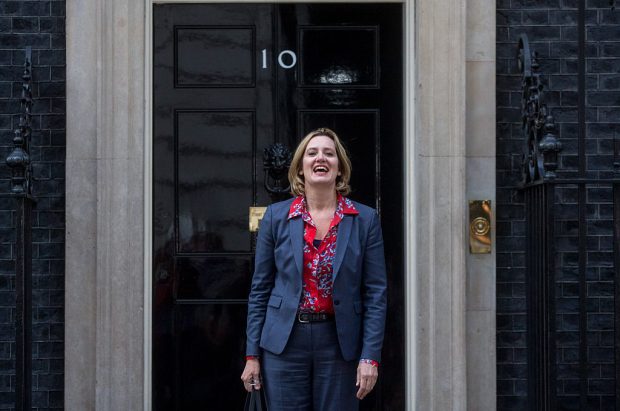Theresa May begins the week with a chunk of her party growing increasingly frustrated with her handling of Brexit. The Prime Minister announced over the weekend that she would not bring her deal back to be voted on in the coming days – instead she has promised to hold a second meaningful vote by March 12. This has led to accusations of can-kicking from members across the House. However, May has grown used to such criticism – the thing No. 10 is worried about is whether ministers will be so dismayed by the move that they vote for an amendment on Wednesday which seeks to force the government to take the option of no deal off the table.
On Wednesday, MPs are due to vote on a series of amendments to May’s Brexit plan. Among them is the Cooper-Letwin amendment to force the government to try and extend Article 50 if no deal looks likely. Under the current proposals, if successful, the government would have to try to extend Article 50 on March 13 – the day after May’s meaningful vote. At present, a number of ministers are threatening to rebel and vote for the amendment – including Amber Rudd, David Gauke and Greg Clark. Some aren’t even planning to resign – instead they wish to wait and see whether May would actually sack them.
May has insisted it would be wrong to vote for the amendment as it is still within the UK’s grasp to leave on time at the end of March. So, how can the government avoid defeat? No. 10 figures are pessimistic about their chances of avoiding defeat but there are several theories doing the rounds as to how they might be able to do this. Last night, news broke of a new amendment – tabled by the Brexit Delivery Group’s Simon Hart – which calls on the government to extend Article 50 until May 23rd. A number of senior Tories believe this amendment could help No. 10 as it offers ministers a way to walk back from the ledge – the amendment is less extreme than Cooper-Letwin as the time period is brief and it doesn’t have legislative teeth. Rather than forcing the government to try and extend Article 50, it merely implores them to.
However, there are still figures in Downing Street who believe that any public acceptance that Article 50 will be extended is harmful to the government’s negotiating strategy. In order to get a concession on the backstop, there is a view that the UK must be able to walk away. There’s also the problem that were May to publicly say she will extend Article 50, the Prime Minister would face a backlash from the Brexiteers in her party. There’s also a view in government that the best way to win a significant concession from Brussels on the backstop would be to table an amendment this week on the concession Attorney General Geoffrey Cox is seeking in order to show it has majority support. However, this is seen as a rather risky option given how much work it took to get the rather vague Brady amendment to pass last month.
The view from those on the brink in Cabinet is that no decision will be made on how to vote until later in the week. On Tuesday, May will address the Commons and update the House on the progress she has made in the negotiations so far. The hope among the would-be rebels is that she will be able to tell the House she is making good progress and make clear either that if her deal is voted down on March 12 she will seek an A50 extension – or that she will set out clearly that there will be an amendment to that meaningful vote which will allow MPs to express support for an A50 extension. Should the government fail to convince these ministers to backdown, the Brexit landscape will look rather different by the end of the week.
Got something to add? Join the discussion and comment below.
Get 10 issues for just $10
Subscribe to The Spectator Australia today for the next 10 magazine issues, plus full online access, for just $10.





















Comments
Don't miss out
Join the conversation with other Spectator Australia readers. Subscribe to leave a comment.
SUBSCRIBEAlready a subscriber? Log in